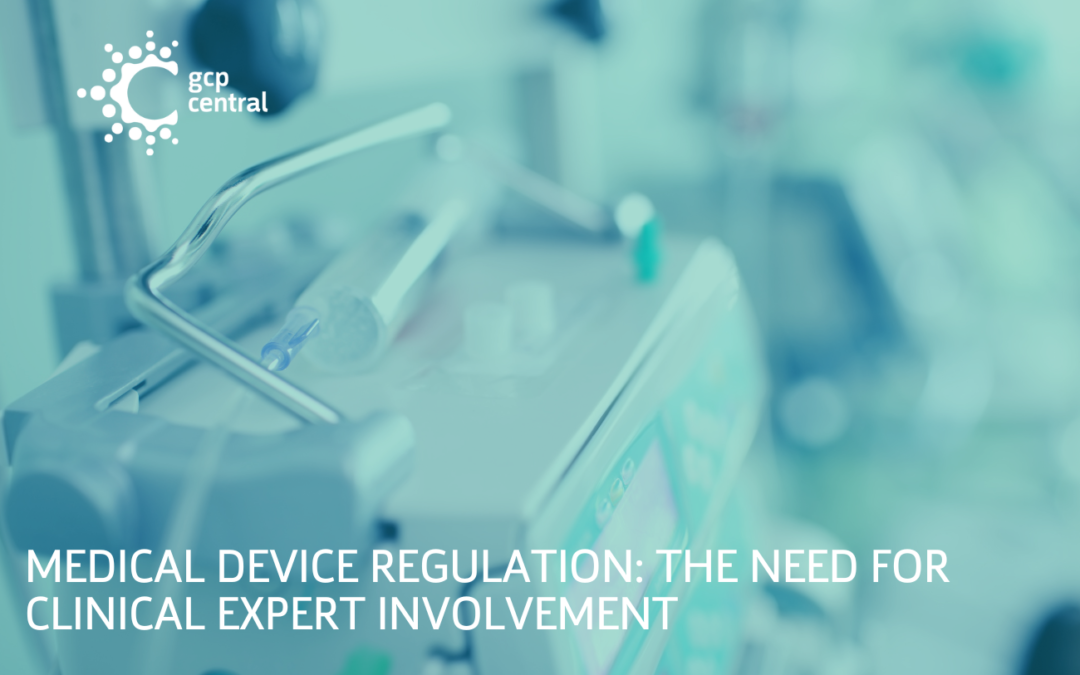In this guest blog from Esther Daemen, we look at the need for the involvement of clinical experts in developing new medical devices, from concept to completion, and the importance of adhering to the new Medical Device Regulation (MDR).
Clinical evaluation is an ongoing process conducted throughout the life cycle of a medical device. It is first performed during the development of a medical device in order to identify data that need to be generated for regulatory purposes and will inform if a new device clinical investigation is necessary, together with the outcomes which need to be studied. It is then repeated periodically as new safety, clinical performance, and/or effectiveness information about the medical device is obtained during its use. This information is fed into the ongoing risk management process (according to ISO 14971:2019) and may result in changes to the manufacturer’s risk assessment, clinical investigation documents, Instructions for Use and post market activities.
This statement comes directly from the MEDDEV 2.7/1 rev.4 (2016) guide on clinical evaluations. MDR 2017/745 re-emphasizes the need for clinical evaluations in Article 61 & Annex XIV.
In practice, a clinical expert should be involved from the conception of an idea for a medical device until the end of the life cycle.
This role entails more than just deciding if and when a clinical trial is required or if literature research ( as allowed) is deemed sufficient for collecting clinical evidence for safe and per intended medical device performance. This also includes the writing and review of the mandated Periodic Safety Update Report (PSUR), clinical Evaluation Plan (CEP), and related Clinical Evaluation Report (CER), amongst others.
Putting Knowledge Into Practice
Illustrating this with a real-life example, a patient was subtracted more fluids than medically allowed during a medical device-related procedure. The client informed the legal manufacturer of the incident, who immediately started an investigation. However, the technical experts deemed the risk low because it happened to one patient only, and the IFU was followed accordingly.
However, no clinical expert reviewed this case. They would have deemed the risk high instead of low from a clinical view because of the increased risk to the patient involved. This could happen to other patients in the same medical condition and with the same allowed device settings, resulting in a high risk for a specific vulnerable group of patients.
The Need For Expertise
Clinical and technical expertise is imperative to ensure proper and accurate risk management and related data collection to ensure patient safety.
In this case, no new clinical investigation was needed, and the data collected resulted in upgrades to the device. It is related to the IFU to protect vulnerable patients. The collected data will also be used when deciding on future clinical trial endpoints for newly developed but similar devices. Following and interpreting the MDR accurately is key to ensuring patient safety.
Useful Links
- European Commission for Public Health – MEDDEV Guides
- Link to the Medical Device Regulation (EU)
With over 20 years of industry experience in biotech, pharma, and medical devices, Esther Daemen is a renowned trainer and presenter on many clinical research, quality, and regulatory compliance areas. She has helped create the MDR Training for GCP Central and is our resident expert on the topic.
GCP Central offers training solutions for the Medical Device Regulation, using a combination of bite-sized learning moments and practical, real-life scenarios, making learning retention easier. With access to all critical updates delivered to your training environment, you can remain up-to-date and compliant with the latest news in the MDR.
Buy your training here:
MDR Course For Clinical Research in Europe
MDR Course For Clinical Research in The Netherlands
For business customers looking for multiple licenses, request a quote here.


